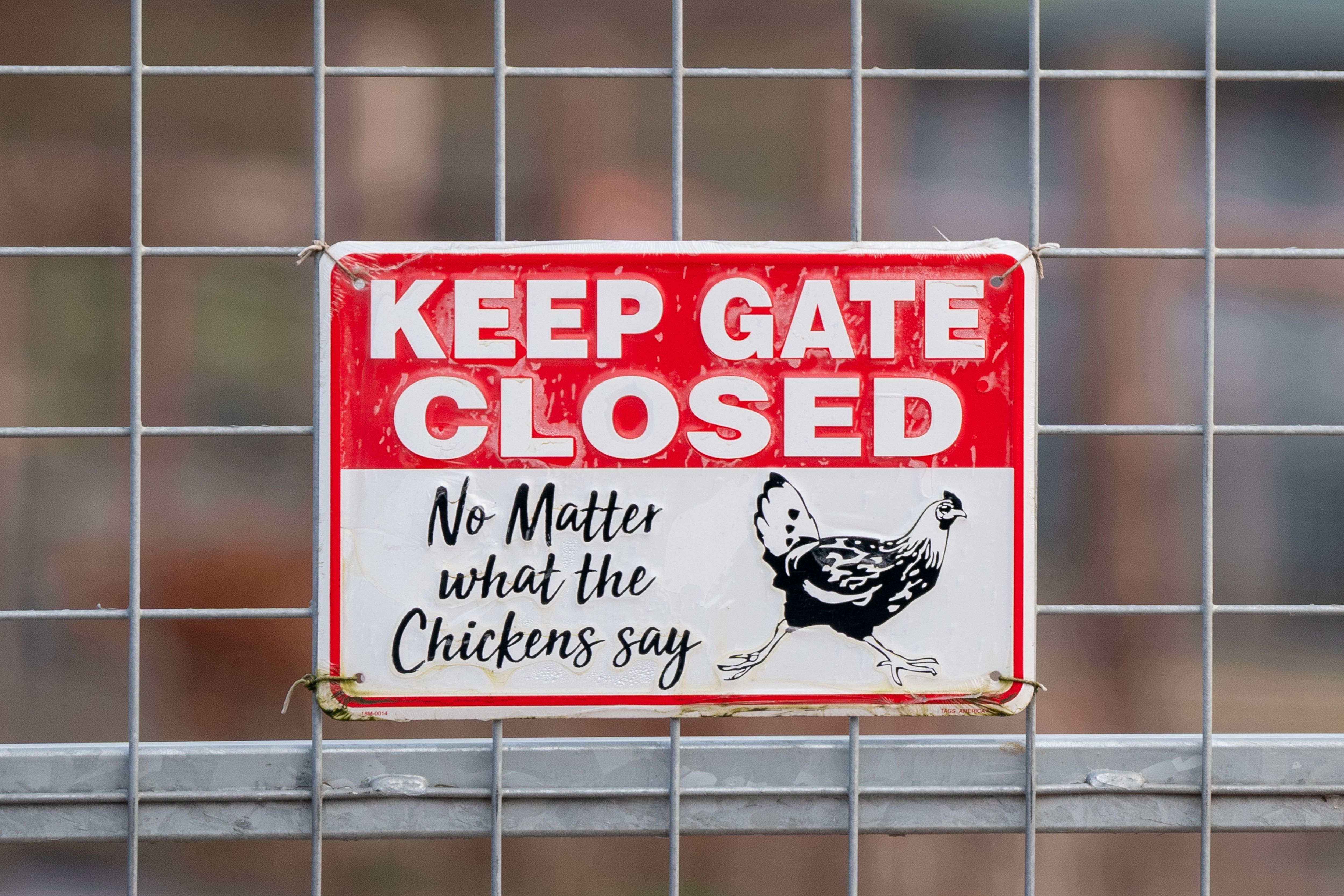Poultry allowed outside again after risk of bird flu lowers
Strict biosecurity measures, such as preventing contact between wild and captive birds, are to remain in place.

Your support helps us to tell the story
From reproductive rights to climate change to Big Tech, The Independent is on the ground when the story is developing. Whether it's investigating the financials of Elon Musk's pro-Trump PAC or producing our latest documentary, 'The A Word', which shines a light on the American women fighting for reproductive rights, we know how important it is to parse out the facts from the messaging.
At such a critical moment in US history, we need reporters on the ground. Your donation allows us to keep sending journalists to speak to both sides of the story.
The Independent is trusted by Americans across the entire political spectrum. And unlike many other quality news outlets, we choose not to lock Americans out of our reporting and analysis with paywalls. We believe quality journalism should be available to everyone, paid for by those who can afford it.
Your support makes all the difference.An order requiring all bird owners to keep their animals indoors to reduce the spread of avian influenza is to be lifted, the Government has said.
Bird keepers have been subject to a national housing order since November 7 to help curb an unprecedented number of bird flu cases – more than 330 have been confirmed in the UK since October 2021.
The Government said poultry and other captive birds can be kept outside again from 0001 on April 18 unless they are in a specified protection zone.
From this date, eggs laid by hens with access to outside ranges can once again be labelled as free range.
Dr Christine Middlemiss, the UK’s chief veterinary officer, said the risk of bird flu infection has reduced following restrictive measures throughout the winter, although bird keepers are being encouraged to observe “stringent standards of biosecurity”.
The unprecedented nature of this outbreak has proven it’s more important than ever for bird keepers to remain vigilant for signs of disease and maintain stringent standards of biosecurity
The strict rules brought in under the Avian Influenza Prevention Zone will still apply, the Department for Environment, Food and Rural Affairs (Defra) said, as the virus may still be circulating in the environment for several more weeks.
Places with poor biosecurity have been assessed as medium risk of infection and those with good biosecurity are seen as low risk.
Dr Middlemiss said: “Whilst the lifting of the mandatory housing measures will be welcome news to bird keepers, scrupulous biosecurity remains the most critical form of defence to help keep your birds safe.
“It is thanks to the hard work of all bird keepers and vets who have played their part in keeping flocks safe this winter that we are in a position to take this action.
“However, the unprecedented nature of this outbreak has proven it’s more important than ever for bird keepers to remain vigilant for signs of disease and maintain stringent standards of biosecurity.”
Keepers are being told to cleanse and disinfect clothing, footwear, equipment and vehicles before and after contact with captive birds, reduce the movement of potential virus carriers such as people and vehicles to and from bird areas, close off contact with wild birds and be on the lookout for any signs of disease.
They are also being told to minimise contamination from manure and slurry, control vermin and thoroughly clean and disinfect bird housing on a continuous basis.
The UK Health Security Agency has said avian viruses do not spread easily to humans and have so far found no positive cases in people while monitoring those who have developed flu or cold-like symptoms after being in contact with a bird.
They are advising that people avoid contact with any sick or dead wild birds they might find and wash their hands after feeding wild birds.
Bird keepers are asked to report any suspicion of disease to Defra.